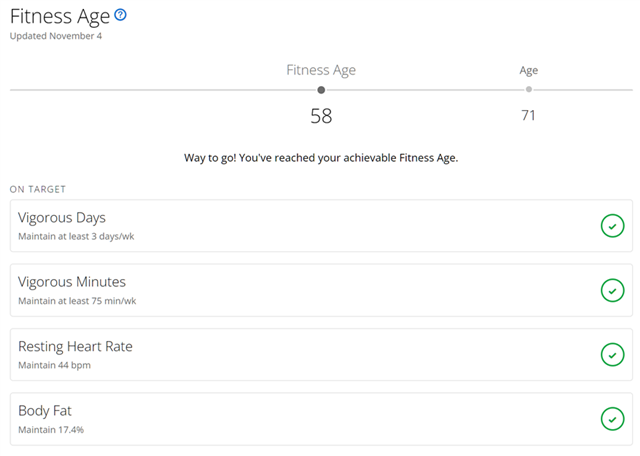I was just looking into the Fitness Age insights, and it says I can lower mine by 5 years with priority on reducing BMI. However, since I am building muscle mass, I want to actually increase my BMI. Does Garmin indicate that 'muscular' people are not 'Fit'? I would prefer that Garmin would know based on some other stats like:
- HR
- V02Max
- % of Body Fat
- Activity (Intense Minutes, Exercises per week, ...)
that you are actually an active / healthy person, just having more weight due muscle mass. I know this feature is a bit 'niche', but since it exists, why not improve it for all kind of active people - not just runners :)
David


